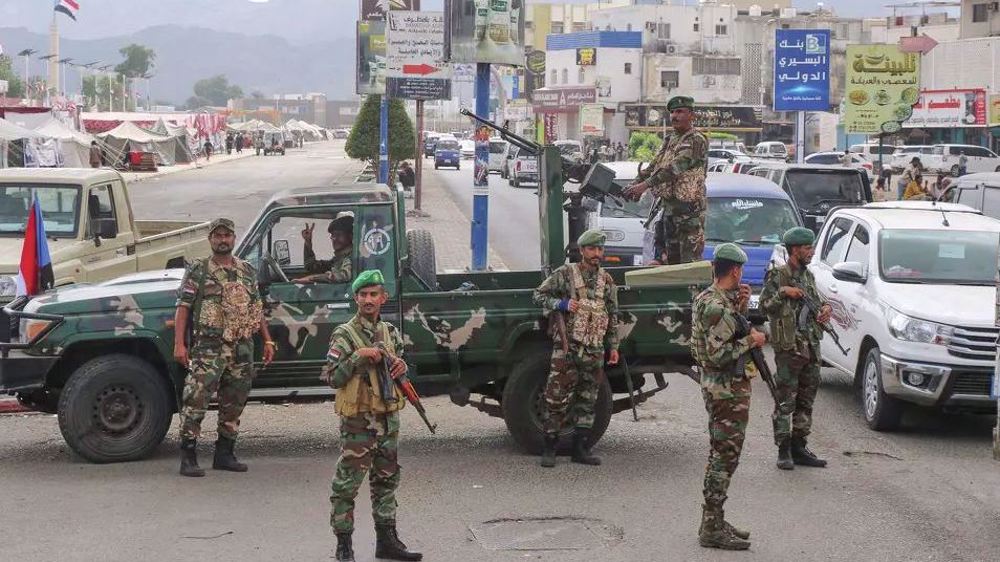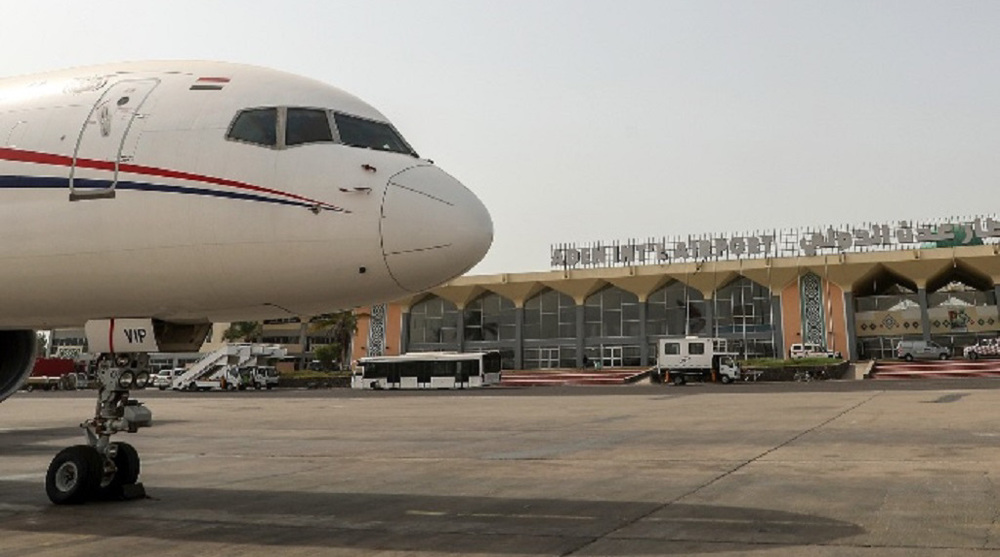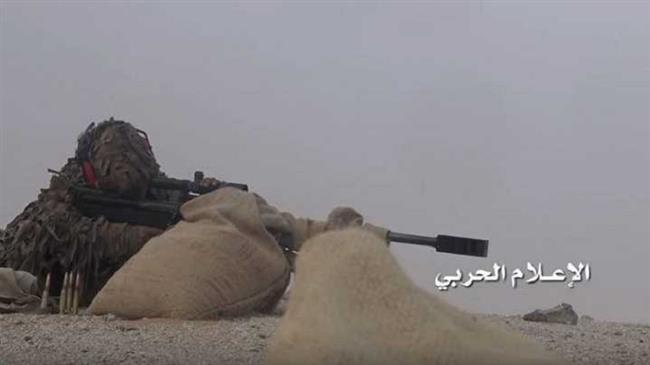Yemeni army unveils two advanced domestically-built missile defense systems
Yemeni Armed Forces have displayed two domestically-built long-range, surface-to-air missile defense systems, which could act as game changers in the face of the Saudi-led military aggression against the Arab country.
Speaking at a press conference in the capital city of Sana'a on Saturday, the spokesman for Yemeni Armed Forces, Brigadier General Yahya Saree, identified the mobile systems as Fater-1 (Innovator-1) and Thaqib-1 (Piercer-1).

He added that the Fater-1 long-range missile defense system entered service back in 2017, and carried out its first operation against the Saudi-led military coalition on October 27 that year.
Saree further noted that the system is capable of intercepting and targeting American F-15 and F-16 fighter aircraft, French Dassault Mirage 2000 fourth-generation jet fighters as well as Eurofighter Typhoon multirole fighters.
“Fater-1 has succeeded in thwarting many hostile air raids in addition to landing operations in [the northwestern] Hajjah province. An MQ-9 Reaper unmanned aerial vehicle was shot down this June, while it was conducting a sortie over [the western province of] al-Hudaydah, with a missile from this system. Another aircraft of the same type was targeted in the skies over Dhamar province earlier this month,” the high-ranking Yemeni military official pointed out.

Saree went on to say that the Thaqib-1 missile system became operational in October 2017, and succeeded in downing an MQ-9 Reaper drone one month after entering service.
He said the system had intercepted Saudi-led Apache attack helicopters south of Hudaydah on September 6, 2018, forcing the aircraft to stop flying over the region for several months.
Saree highlighted that the Thaqib-1 missile system has succeeded in confronting a number of Saudi-led reconnaissance aircraft, warplanes and Apache helicopters, stressing that it is now in use in a number of Yemeni regions.
Yemeni forces launch drone attack on Saudi airbase
Earlier on Saturday, army troopers and allied fighters from Popular Committees launched a string of airstrikes against military aircraft hangars and runways in Saudi Arabia's southwestern region of Asir, using a squadron of domestically-manufactured Qasef-2K (Striker-2K) combat drones.
Saree said the unmanned aerial vehicles struck with great precision the designated targets in King Khalid Air Base, which lies 884 kilometers south of the capital Riyadh.

He added that the aerial attacks were in retaliation for the crimes being committed by the Saudi-led coalition against the Yemeni nation and the ongoing siege on Yemen.
Saudi Arabia and a number of its regional allies launched a devastating campaign against Yemen in March 2015, with the goal of bringing the government of former president Abd Rabbuh Mansur Hadi back to power and crushing the Ansarullah movement.

The US-based Armed Conflict Location and Event Data Project (ACLED), a nonprofit conflict-research organization, estimates that the Saudi-led war has claimed the lives of over 60,000 Yemenis since January 2016.
The war has also taken a heavy toll on the country’s infrastructure, destroying hospitals, schools, and factories. The UN says over 24 million Yemenis are in dire need of humanitarian aid, including 10 million suffering from extreme levels of hunger.
Iran widens food subsidy coverage amid rising living costs
Gen. Soleimani thwarted US plots in West Asia region, Hezbollah chief says
VIDEO | Thousands gather in Baghdad to honor Soleimani and al Muhandis
Israel abducted 42 Palestinian journalists, including 8 women, in 2025
Iran’s steel output up 9.2% y/y to 3.4 million mt in November
VIDEO | Venezuelan protesters demand US release President Maduro
Trump claims US will ‘run’ Venezuela in interim after kidnapping of Maduro
Trump says US will be ‘very strongly involved’ in Venezuela’s oil industry



















 This makes it easy to access the Press TV website
This makes it easy to access the Press TV website